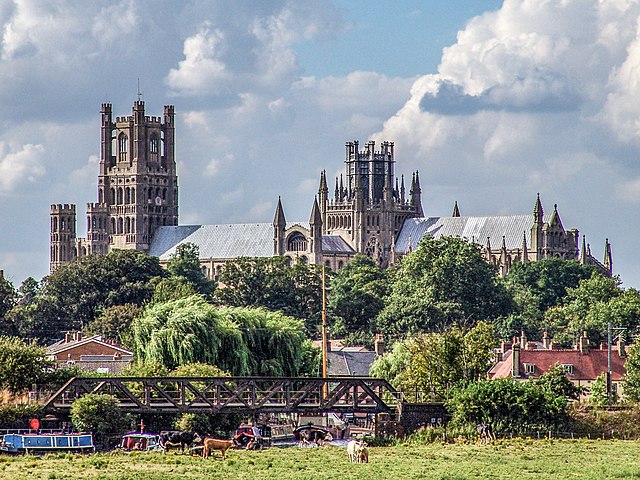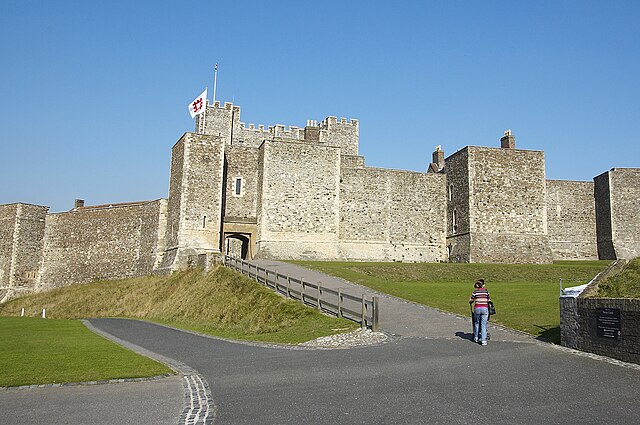William de Longchamp was a medieval Lord Chancellor, Chief Justiciar, and Bishop of Ely in England. Born to a humble family in Normandy, he owed his advancement to royal favour. Although contemporary writers accused Longchamp's father of being the son of a peasant, he held land as a knight. Longchamp first served Henry II's illegitimate son Geoffrey, but quickly transferred to the service of Richard I, Henry's heir. When Richard became king in 1189, Longchamp paid £3,000 for the office of Chancellor, and was soon named to the see, or bishopric, of Ely and appointed legate by the pope.
Ely Cathedral
Gate at Lincoln Castle, which Longchamp besieged in 1190
Geoffrey (archbishop of York)
Geoffrey was an illegitimate son of King Henry II of England who became bishop-elect of Lincoln and archbishop of York. The identity of his mother is uncertain, but she may have been named Ykenai. Geoffrey held several minor clerical offices before becoming Bishop of Lincoln in 1173, though he was not ordained as a priest until 1189. In 1173–1174, he led a campaign in northern England to help put down a rebellion by his legitimate half-brothers; this campaign led to the capture of William, King of Scots. By 1182, Pope Lucius III had ordered that Geoffrey either resign Lincoln or be consecrated as bishop; he chose to resign and became chancellor instead. He was the only one of Henry II's sons present at the king's death.
Henry II with Thomas Becket, from a 13th-century illuminated manuscript
Dover Castle, where Geoffrey was briefly imprisoned
Scenes from the Life of Christ in the Leiden St Louis Psalter made for Geoffrey





